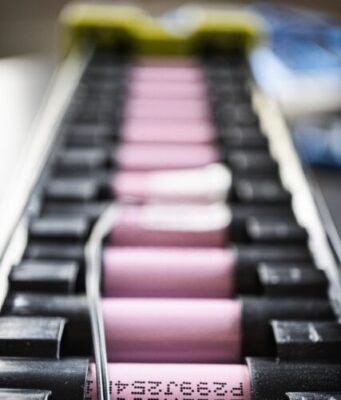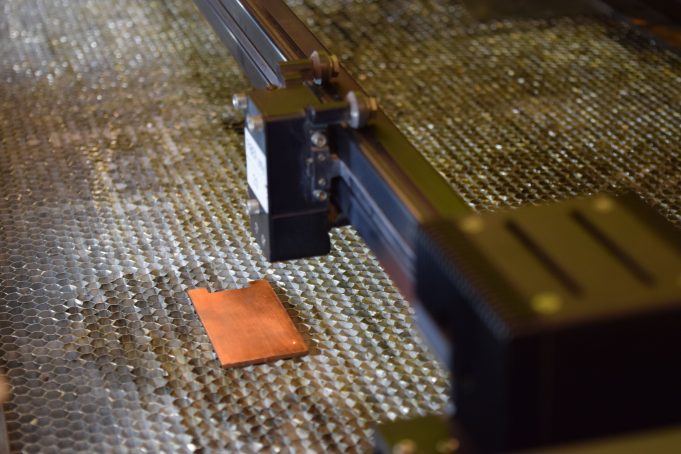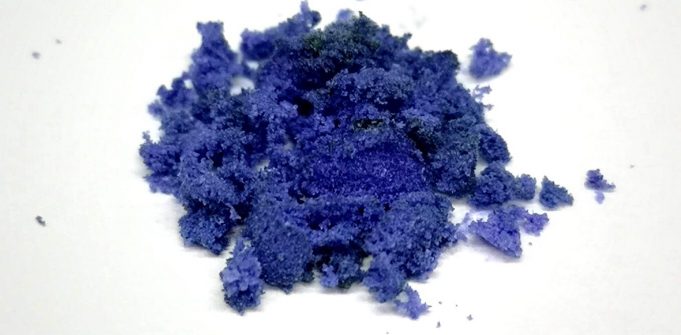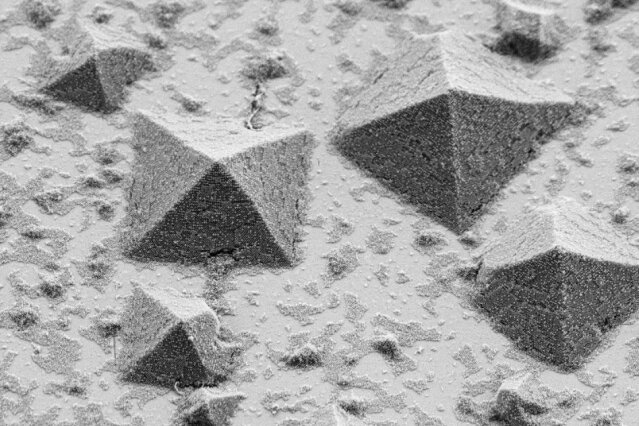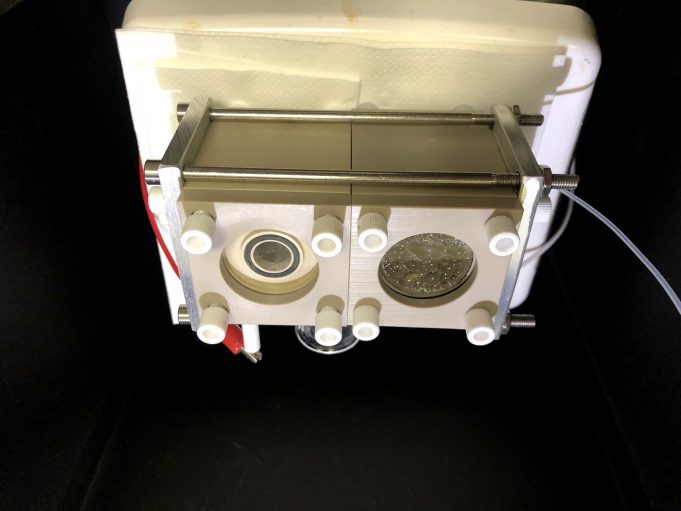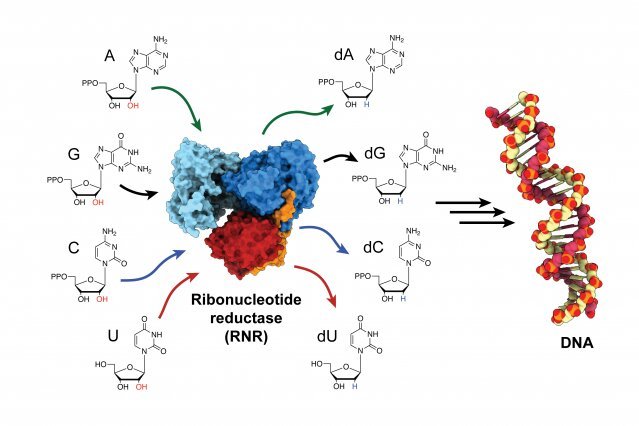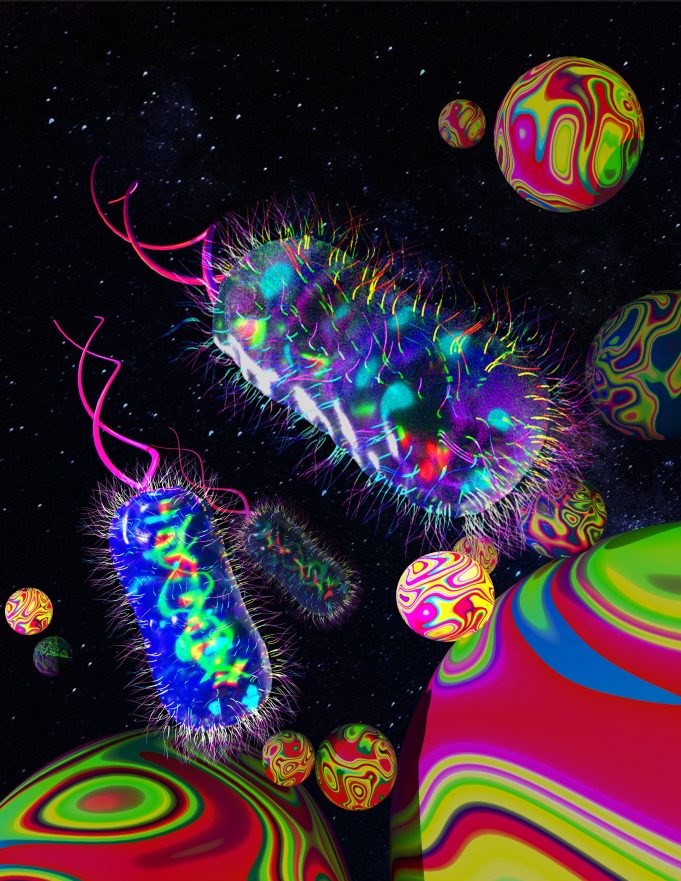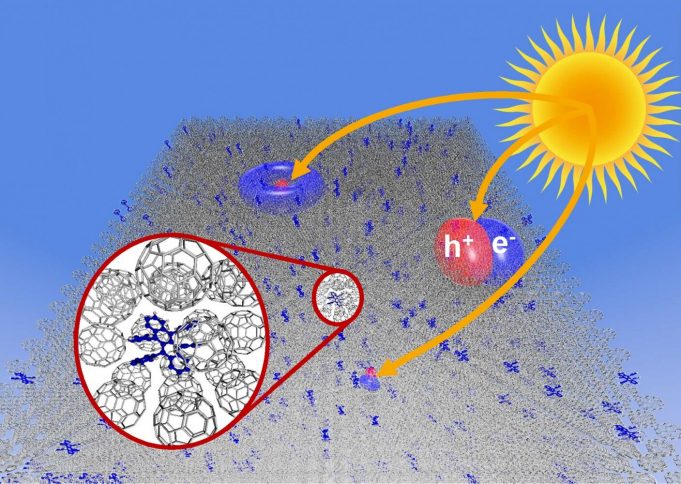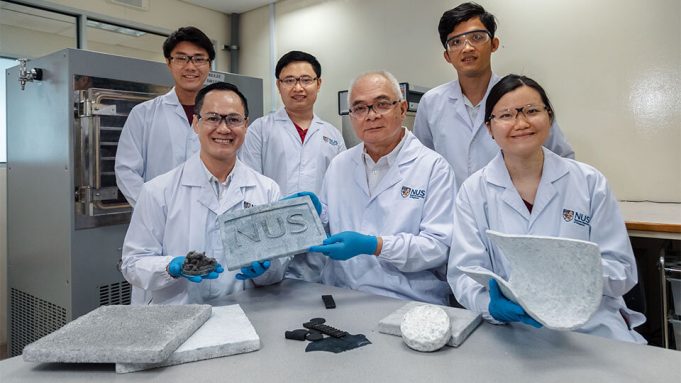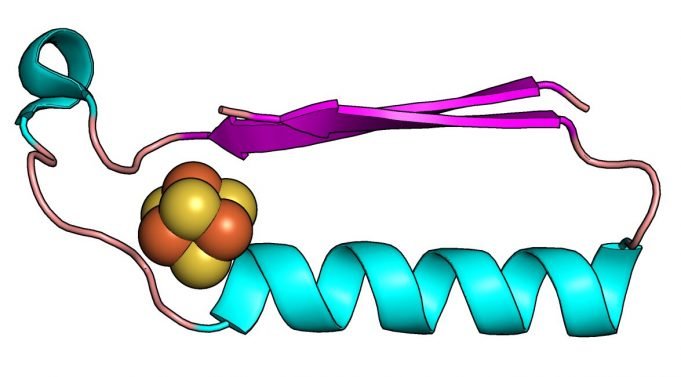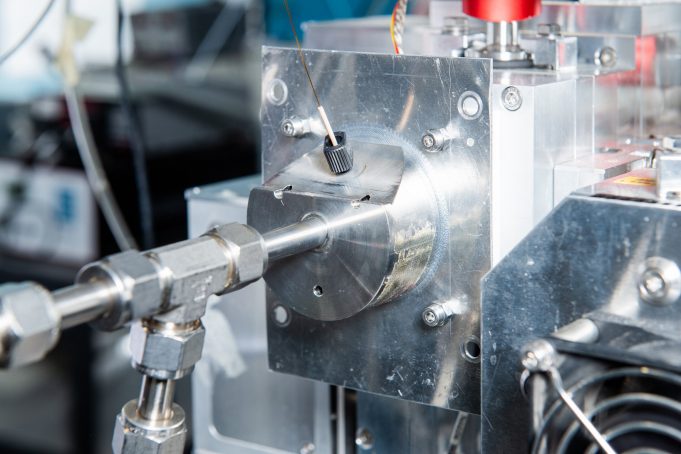Bacterial pathogens can live on surfaces for days. What if frequently touched surfaces such as doorknobs could instantly kill them off?
Purdue University engineers have created a laser treatment method that could potentially turn any metal surface into a rapid bacteria killer—just...
What's your favorite color? If you answered blue, you're in good company. Blue outranks all other color preferences worldwide by a large margin.
No matter how much people enjoy looking at it, blue is a difficult color to harness from nature. As...
The process of crystallization, in which atoms or molecules line up in orderly arrays like soldiers in formation, is the basis for many of the materials that define modern life, including the silicon in microchips and solar cells. But...
If humans ever hope to colonize Mars, the settlers will need to manufacture on-planet a huge range of organic compounds, from fuels to drugs, that are too expensive to ship from Earth.
University of California, Berkeley, and Lawrence Berkeley National...
How do you capture a cellular process that transpires in the blink of an eye? Biochemists at MIT have devised a way to trap and visualize a vital enzyme at the moment it becomes active—informing drug development and revealing...
A team of scientists, led by the University of Bristol, has developed a new photosynthetic protein system enabling an enhanced and more sustainable approach to solar-powered technological devices.
The initiative is part of a broader effort in the field of synthetic...
Engineers have created a tiny device that can rapidly detect harmful bacteria in blood, allowing health care professionals to pinpoint the cause of potentially deadly infections and fight them with drugs.
The Rutgers coauthored study, led by researchers at Rochester...
Scientists at TU Dresden and Hasselt University in Belgium investigated the physical causes that limit the efficiency of novel solar cells based on organic molecular materials. Currently, the voltage of such cells is still too low—one reason for their...
A team of NUS researchers has achieved a major technological breakthrough by converting waste rubber tires into super-light aerogels that have a wide range of applications. This is the first time that aerogels are made from waste rubber tires....
Rutgers researchers have discovered the origins of the protein structures responsible for metabolism: simple molecules that powered early life on Earth and serve as chemical signals that NASA could use to search for life on other planets.
Their study, which...
Researchers at the Paul Scherrer Institute PSI have developed a new method to analyse particulate matter more precisely than ever before. Using it, they disproved an established doctrine: that molecules in aerosols undergo no further chemical transformations because they...



